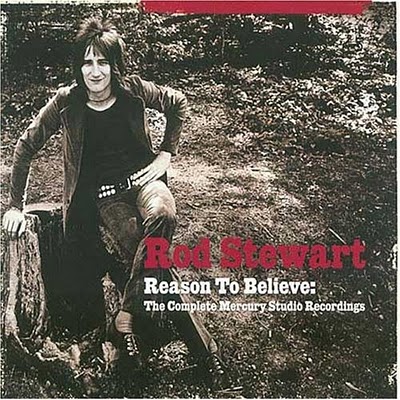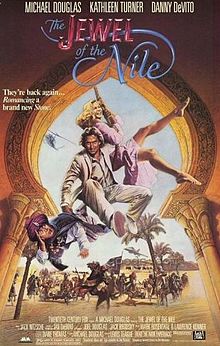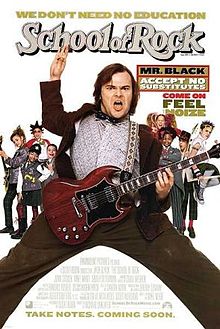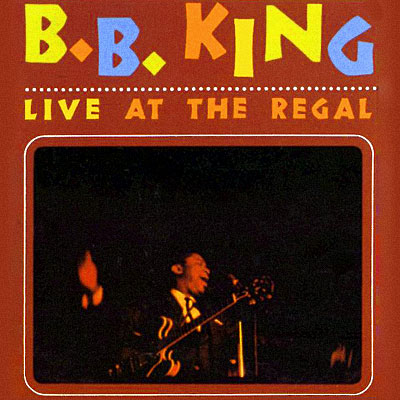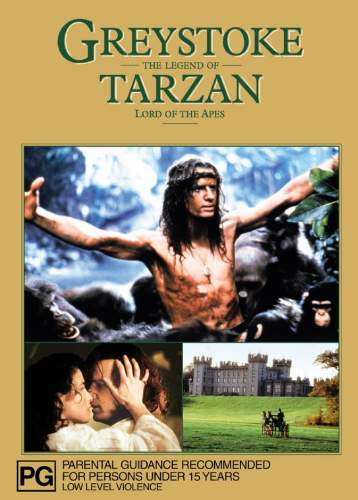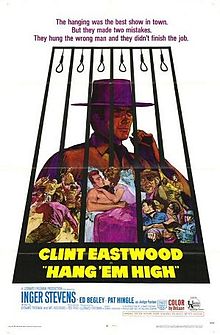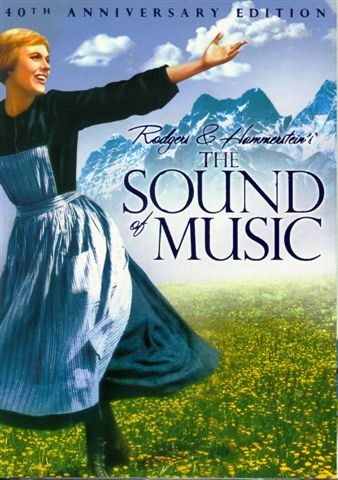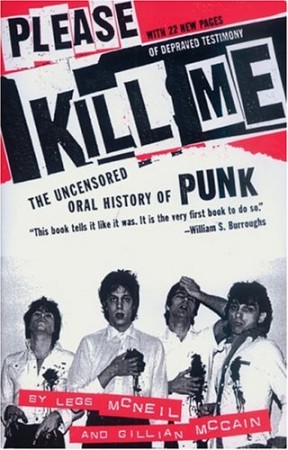
PKMTOHOP
Please Kill Me – The Uncensored Oral History of Punk, by Legs McNeil and Gillian McCain – Probably the best book I’ve read about music. The book is stunning in the way that it gathers transcript segments from hundreds of interviews and assembles them in a fascinating way without any expository writing from the author (although the lengthy transcripts from Leg McNeil at the end come off as just that). It’s like watching a really great documentary, one that could never have been assembled. At the end of the book there’s a great “cast of characters” section that explains who all of the lunatics quoted in the book are, a staggering number of whom are already dead (maybe this is what the title of the book is all about). Quoted extensively in the book is Danny Fields, one of two people the book was dedicated to. He’s not someone I know anything about, but he was around the whole time the scene existed, and he also managed great bands like the Stooges, the Ramones and the Modern Lovers, so hey – glad to know him! There are also great quotes from Bebe Buell, one of the most famous rock ‘n’ roll groupies (the mother of Liv Tyler by Stephen Tyler, although she was with Todd “Giant Penis” Rundgren at the time). Patti Smith, Nancy Spungen, Lester Bangs, Debbie Harry, are all among the many, many people quoted in the book too.
Fans of British punk will probably say “oi, what the hell’s going on?” The book chronicles the New York and Detroit punk scenes, bringing in the Sex Pistols where they intersect with the New Yorkers (the Clash and other UK punk bands are virtually ignored) making it more a companion piece to From The Velvets To The Voidoids than anything else. The central characters to this book are Lou Reed and Richard Hell (like the previous book), but also Andy Warhol and his people, Iggy and the Stooges, the MC5, the Ramones, Sid Vicious (since he had a strong New York connection – he died there) and so many more. The book is full of stunning drug use, raunchy sex and amazing violence. It’s also full of breathtaking quotes:
La Monte Young: I was – so to speak – the darling of the avant-garde. Yoko Ono was always saying to me, “If only I could be as famous as you.”
So I had an affair with Yoko and did a music series at her loft, and I put a warning on the very first flyer: THE PURPOSE OF THIS SERIES IS NOT ENTERTAINMENT. I was one of the first people to destroy an instrument onstage. I burned a violin at the YMHA, and people were shouting things like Burn the composer!”
There’s lots of discussion about the Velvet Underground’s disastrous visit to California.
Paul Morrissey: Then Bill Graham came from San Francisco, begging me to book the Velvet Underground into his toilet the Fillmore – the Swillmore Vomitorium. Boy, was he a creep. They always talk about him as a saint. Ucch! I mean, he was really AWFUL! Just a real monster. He came to LA crying practically. His argument was that it was a big holiday weekend, and you know, “I’ve been fighting so hard to keep my place open, and I’m going bankrupt, and the police are closing me, and they’re getting me for this and getting me for that and I don’t know if I can survive but YOUR act is so famous, that if you came to San Francisco it would save my club…”
The book has some perspective on what Lou Reed’s collaboration with Metallica is all about:
John Cale: Lou was very full of himself and faggy in those days. We called him Lulu, and I was Black Jack. Lou wanted to be the queen bitch and spit out the sharpest rebukes of anyone around. Lou always ran with the pack and the Factory was full of queens to run with. But Lou was dazzled by Andy and Nico. He was completely spooked by Andy because he could not believe that someone could have so much goodwill, and yet be so mischevous. Lou tried to compete.
Unfortunately for him, Nico could do it better – Nico and Andy had a slightly different approach, but they outdid Lou time and time again.
Danny Fields talks about the time he set Jim Morrison up with Nico to save him from the ugly groupies that hung around with them.
Danny Fields: I met Morisson at the Elektra office in Los Angeles and he followed me back to the Castle in his rented car. Morrison walked into the kitchen and Nico was there and they stood and circled each other.
Then they stared at the floor and didn’t say a word to each other. They were both too poetic to say anything. It was a very boring, poetic, silent thing that was going on between them. They formed a mystical bond immediately – I think Morrison pulled Nico’s hair and then he proceeded to get extremely drunk and I fed him whatever was left of my drugs that Edie Sedgwick hadn’t stolen.
Then, of course, Nico wrote a song about the last time she ever saw Morrison. And now they’re both dead.
Ronnie Cutrone: I loved Jim Morrison dearly, but Jim was not fun to go out with. I hung out with him every night for just about a year, and Jim would go out lean up against the bar, order eight screwdrivers, put down six Tuinals on the ball, drink two or three screwdrivers, take two Tuinals, then he’d have to pee, but he couldn’t leave the other five screwdrivers, so he’d take his dick out and pee, and some girl would come up and blow his dick, and then he’d finish the other five screwdrivers and then he’d finish up the other four Tuinals, and then he’d pee in his pants, and then Eric Emerson and I would take him home.
That was a typical night out with Jim. But when he was on acid, then Jim was really fun and great. But most of the time he was just a lush pill head.
Great great intro to the germination of the Stooges, by talking about what these guys were like in high school, and about the formation in Detroit of the MC5.
Wayne Kramer: We went to Ann Arbor one night to see Iggy play drums in the Prime Movers – this blues band that did a lot of really eclectic stuff. Iggy was certainly the best drummer in Ann Arbor. He was just unbeatable, man.
On the recording of the first Stooges album:
Ron Asheton: We’d never been into a recording studio before and we set up Marshall stacks, and set them on ten. So we started to play and John Cale just says, “Oh no, this is not the way…”
We were like, “There is no way. We play loud, and this is how we play.”
So Cale kept trying to tell us what to do and being the stubborn youth that we were, we had a sit-down strike. We put our instruments down, went in one of the sound booths, and strated smoking hash.
But Cale kept trying to talk to us. He tried to tell us about recording. “You can’t get the right sound with these big amps, it just doesn’t work.”
But that’s all we knew. We couldn’t play unless it was high volume. We didn’t have enough expertise on our insturments it was all power chords. We had opened up for Blue Cheer at the Grande, and they had like triple Marshall stacks, and they were so loud it was painful, but we loved it – “WOW, triple stacks, man.” That was the only way we knew how to play.
So our compromise was, ‘Okay, we’ll put it on nine.” Finally he just said, “Fuckit,” and he just went with it.
Wow… the Stooges opening for BLUE CHEER!!!
Iggy Pop: When we started recording, Nico and John Cale used to sit in the booth looking like they were in the Addams family – Cale was wearing a Dracula cape with a great big collar on it. He looked like Z-Man in Beyond the Valley of the Dolls and he had this funny haircut. And Nico was knitting. Throughout that whole album, she sat there knitting something, maybe a sweater.
Danny Fields: The bill at the New York State Pavilion at the World’s Fair was David Peel, the Stooges, and the MC5. It was a famous show. Howard Stein, the promoter, claimed that the Stooges gave his wife a miscarriage. he called all the promoters and said, “Go see the Stooges and they’ll give you a miscarriage!”
Leee Childers: Iggy’s performance went beyond being just sexual. Geri Miller, the Warhol Supestar, was sitting in a chair in what could be loosely described as the front row, and Iggy walked over to her, put his hand on her face, grabbed hold real tight, then dragged her by the face across the floor, with her hanging on to the metal folding chair. What Iggy was doing to her wasn’t sexual, it was just brutal. No one knew what to think.
Iggy was the first time I ever saw what was to become my rock & roll.
Iggy Pop: When we first started out, our fans were JUST A MESS – it was like early Christianity. It was the ugliest chicks and the most illiterate guys – people with skin problems, people with sexual problems, weight problems, employment problems, mental problems, you name it, they were a mess.
David Johansen: It was real easy to take over because there was nothing happening. There weren’t any bands around so we just came in and everybody said the Dolls are the greatest thing since Bosco. But we were the only band around, really, so we didn’t have to be that good.
Nancy Spungen: [The New York Dolls] were the first band that I was hanging ou with all the time. I slept with David Johansen, I slept with Johnny Thunders, I slept with Syl Sylvain, I slept with Jerry Nolan – everybody but Arthur Kane.
Duncan Hannah mentions a New Year’s Eve 1973 at the Academy Of Music that had the New York Dolls, KISS and Iggy and the Stooges playing… my jaw dropped. Holy shit! But these were the kind of line-ups that were possible in those days.
Richard Lloyd and others talk about the psychiatric treatments that they were put through to treat their insanities.
Richard Lloyd: Hilly [Kristal, owner of CBGB's] was like, “What kinds music do you play?” We said, “Well, what does ‘CBGB-OMFUG’ stand for?” He said, “Country, Bluegrass, Blues, and Other Music for Uplifting Gourmandizers.” So we said, “Oh yeah, we play a little of that, a little rock, a little country, a little blues, a little bluegrass…”
Dee Dee Ramones: John Cummings [aka Johnny Ramone] was a construction worker at 1633 Broadway. I got transferred there and me and Johnny would meet every day for lunch. Usually we’d go to the Metropole, a go-go club, and have a few beers. After we got a little tipsy, we’d go over to Manny’s Guitar Store on Forty-eighth Street, which was next door, and look at the guitars.
Then one day, it was a Friday, it was a payday, and we both bought a guitar each and decided to start a band. He bought a Mosrite and I bought a Danelectro.
Monte Melnick did us a favor by sneaking us into a rehearsal space called Performance Studios. That’s when the Ramones really, somehow, got started. We tried to figure out some songs from records, but couldn’t. I had no idea how to tune a guitar and only knew the E chord. No one else was any better. Joey started off by playing drums at the first rehearsal. It took him two hours to get the drum set ready. We waited and waited for Joey to put the drum kit together. I couldn’t take it anymore so we started playing. We stopped after the first song and I looked over at Joey and he didn’t have the stool on the drum stand. He was just sitting on the point.
The anarchy of their lives is unbelievable.
Dee Dee Ramone: One night, as I was leaving CBGB’s at four in the morning, I walked outside and saw Connie sitting on the hood of a car, filing her nails.
I liked her right away. She was wearing a balck evening dress and spiked high-heel shoes, and she had a bottle of blackberry brandy in her purse. She looked like an ancient vampire countess who was defnitely on a mission to capture my soul.
In the morning, I acted like everything was normal. Connie was in a bad mood though and wanted to cop. So did I. So we took a cab to Norfolk Street and bought some dope. She was a prostitute, I was a Ramone, and we were both junkies.
Great tales of Eileen Polk and Connie Ramone catfighting, Wayne Country smashing Handsome Dick Manitoba, and more beatings.
Legs McNeil: Just as we were talking to Lou Reed the Ramones hit the stage and it was an amazing sight. Four really pissed-off guys in black leather jackets. It was like the Gestapo had just walked into the room. These guys were definitely not hippies.
Then they counted off a song – “ONE, TWO, THREE, FOUR!” – and we were hit with this blast of noise, you physically recoiled from the shock of it, like this huge wind, and before I could even get into it, they stopped.
Apparently they were all playing different songs. The Ramones had a mini-fight onstage. They were just so thoroughly disgusted with each other that they threw down their guitars and stomped off the stage.
It was amazing. It was like actually seeing something come together. Lou Reed was sitting at the table laughing.
Then the Ramones came back, counted off again, and played the best eighteen minutes of rock and roll that I had ever heard. You could hear the Chuck Berry in it, which was all I listened to – that and the Beatles second album with all the Chuck Berry covers on it. When the Ramones came offstage we interviewed them, and they were like us. They talked about comic books and sixties bubble-gum music and were really deadpan and sarcastic.
I really thought I was at the Cavern Club in 1963 and we had just met the Beatles. Only it wasn’t a fantasy, it wasn’t the Beatles, it was our band – the Ramones. But we couldn’t hang out with them that long, because we had to go interview Lou Reed, who was old, and snotty, and like someone’s cranky old drunken father.
Joey Ramone: That was the first night we met Lou Reed. Lou kept telling Johnny Ramone that he wasn’t playing the right kind of guitar, that he should play a different kind of guitar. It didn’t go over so favourable with Johnny. I mean, when John found his guitar he didn’t have much money – he bought his guitar for fifty dollars. And Johnny liked the idea of the Mosrite because nobody else used a Mosrite – so this would be his sort of trademark. So Johnny thought Lou was a real jerk.
William S Burroughs: I always thought a punk was someone who took it up the ass.
Richard Lloyd: Richard Hell and I went to cop once and got caught by the police, who pushed us into a building and wanted to strip-search us. They found a needle on Hell and said “Where’d this come from?”
Richard said, “I’m an antique-needle collector.”
Then he proceeded to tell them he was a masochist and all the holes in his arm were there because he liked them. He was like, “You go a problem with that? I stick things into myself. I know I’m sick.”
So they just took our heroin and let us go. After the cops left, Hell was like, “Goddamn those fucking cops, they only wanted our dope, now we have to cop again – and we don’t even have a syringe!”
Richard Hell: The junk scene was just like the sex, it was all a lark. I mean, it still had this “nice” taint of the forbidden, yet at the same time nobody really thought of it as dangerous.
You knew that technically, even if you got a habit, all you had to do was stop using for two weeks, and it would be gone. That’s the way you looked at it. And you thought you could maintain that kind of approach to it for four or five years before you were in too deep. It was just like fun, but you know it was so much fun that it definitely accelerated. Things go better with dope!
Legs McNeil: Glitter rock was about decadence – plaform shoes and boys in eye makeup, David Bowie and androgyny. Rich rock stars living their lives from Christopher Isherwood’s Berlin Stories, you know, Sally Bowles hanging out with drag queens, drinking champagne for breakfast and having menages a tros, while the Nazis slowly grab power.
Decadence seemed so lame, because decay suggests that there’s still some time, and there wans’t any more time. Things had collapsed. We had lost the war in Viet Nam, to a bunch of guys with sticks in black pajamas. Vice President Spiro Agnew had to resign because he was caught taking bribes in the White House. And Richard Nixon had the Watergate burglars break into the Democratic national headquarters because he was so paranoid. I mean fucking Nixon had won the election by the biggest landslide in history. He was just insane. And then he had to resign. And then President Gerald Ford told New York City to drop dead when it went bankrupt. I mean, New York City declared bankruptcy!
Compared to what was going on in the real world, decadence seemed kind of quaint. So punk wasn’t about decay, punk was about the apocalypse. Punk was about annihilation. Nothing worked, so let’s get right to Armageddon. You know, if you found out the missiles were on their way, you’d probably start saying what you always wanted to, you’d probably turn to your wife and say,” You know, I always thought you were a fat cow.” And that’s how we behaved.
Leee Childers: The phone rang. It was Malcolm McLaren. He said “Do you want [the Heartbreakers] to come and do a tour with my band, the Sex Pistols?”
I’d never heard of them, so I said, “Well, yes. But I’ll have to call you back.”
Then I called Johnny Thunders and I said, “You want to go to England and do a tour with Malcolm McLaren and some band called the Sex Pistols?”
He hadn’t head of the Sex Pistols either, but he said, “Well, you remember Malcolm, he was that weird guy who managed the Dolls for a few months and made us all dress like Russians? It should be fun. It’s a trip to England. Let’s go.
There’s a great sense of destiny in the book, of things coming together, momentous things happening.
Philippe Marcade: [Nancy Spungen] called me and she was crying her head off. She said, “Ain’t no fucking guy wanna go out with me, no fucking guy…”
I told her, “Listen, no fucking guy will go out with you because you’re a junky and it’s kind of gross, you know, especially on a girl. What you should do is clean up your act, like maybe go for a vacation. Don’t stay here, it’s too easy to cop.”
She said, “I don’t wanna go anywhere, don’t know where to go.”
I said, “Go to England. They have all this great shit happening over there. I mean, you speak English, so you’ll be fine.
Sadly, she wasn’t going to be fine.
Leee Childers: The Heartbreakers and I were at Caroline Coon’s house for Christmas dinner. She was a journalist and she had money. And we were rock performers and we had none. On Christmas Day in London, everything shuts down. There are no buses, there are no subways. How are poor people supposed to go visit their relatives? It really is cruel. There’s only taxis, and they’re double fare. So we scraped our pences together and got a taxi to Caroline Coon’s house because then she would at least feed us.
But once we were there, we were trapped. Along with every other punk rock band in London at the time. The Clash were all there, the Damned were all there, the Sex Pistols were all there. Everyone was at Caroline Coon’s house. She was trying to make heself the queen of punk. She was an awful woman.
Malcolm McLaren: When Nancy Spungen came into my shop it was as if Dr Strangelove had sent us this dreaded disease specifically to England, and specifically to my store.
I tried in every single way possible either to get her run over, poisoned, kidnapped, or shipped back to Ne York.
Wayne/Jayne Country gets into the scene, talking about growing up in Dallas, Georgia, how his mother was a freaked out cult Christian apocalyptist who refused to put up a Christmas tree because Christmas trees are evil and his dad was screwing a sixteen-year-old hairdresser; he moved to Atlanta where they had a law that said you could be arrested as a homosexual if your hair touched the top of your ears, and where they would get shot at walking down the street in drag. “We got chased all the time. I never got caught, I was a good runner, but we used to take two pair of shoes out with us, a pair of high heels and pair of sneakers.”
Mary Harron: We were moving forward into the future and I had no idea what that future was. I felt like everything was new – there were no definitions, or boundaries, it was just moving forward into the light, it was just the future, everything new, no rules, no nothing, no definitions. “What are we? We don’t know.”
It wasn’t for years that I realised it was nihilism. Or whatever.”
Ironic quote of the years: “It’s nihilism. Or whatever.”
Bob Quine: I thought the Clash were nice guys personally, but they had as much musical talent as the Ramones. Plus they tried to put a socially redeeming value about social issues in their fucking songs but I don’t think they had the slightest idea what they were talking about. And I found their music was just abominable. It was only because of Lester Bangs’ worship of them that I bought their albums to try to like their stuff, but I can’t think of anything I liked.
Pam Brown: One night after the Ramones played the 82 Club, I was walking back to the Ramones’ loft at four in the morning, and this Cadillac pulls up next to me and this guy says, “I’ll give you fifty dollars for a blow job.”
I thought, Wow, fifty dollars!
I was so desperate for money all the time. I was living with Joey Ramone at Arturo’s and we were living on cereal and cream cheese and tomoato sandwiches – that was pretty much what we loved on. So when the guy propositioned me – it was something I’d always wanted to do, a lot of women have that fantasy – I was just drunk enough to do it.
So I said, “Okay.” Then I hopped in the car.
It was so EASY! The guy liked it so much he called me afterwards, and he was my one customer.
A while after that I started hanging out with this real pimp. He was so scary to me. I’d get in his car – he had these girlfriends and heroin – and we’d go up to the scariest places and hang around. To me that was the ultimate – I was so scared to go to Harlem, but it was so cool, and I could snort heroin and coke all night for free. It was the greatest.
Richard Lloyd: I met Anita Pallenbertg. She was trying to get off drugs, sorta. I think Keith Richards was straight, whatever straight constitutes for Keith. He wasn’t doing heroin at least.
I fell in with Anita and we started buying dope together. Our relationship was platonic and drug-related. She would pawn some of her jewelry and we would go down to the Lower East Side in a limo. The dealers were like, “GET THAT FUCKING LIMO OFF MY BLOCK! WHAT ARE YOU, CRAZY?”
Bebe Buell: At that point there was only one person badder than me and that was Anita Wallenberg
Cheetah Chrome: I was racing with Mick Jagger and Richard Lloyd on roller skates [at Keith Richards' birthday party] and I fell and broke my wrist. It was the stupidest thing to do…
Bebe Buell:Â I loved Stiv, he was a great guy, but he was getting a little too crazy, as far as his ingestion of substances. He started doing a lot of coke and alcohol, and he started to change. He became violent when he drank. Yeh, he would hurt himself and people and objects. But I was bigger then him so he never fucked with me.
I was a good four inches taller, and I outweighed him by about fifteen pounds. So he would never strike me, but he would strike anybody that was around me. So sometimes I would have to tie him up, to get him to calm down. Stiv would get razy, he would be bouncing off the walls like a maniac, he would get insane.
So I’d have to get him down on his stomach, put my knee into his back, and I would take his belt and tie it around his wrists. Then I’d sit on his legs until he calmed down. I likened it to epilepsy. That’s what I used to say to him, “you had one of those fucking psycho epileptic fits last night.”
So then I started fooling around with Jack Nicholson, and that’s what ended the relationship. It hurt Stiv, but I was in control of my life. I wasn’t some victim, I knew what I was doing, and I wanted to hang out with Jack Nicholson. I mean, Stiv had gotten too creazy.
But I didn’t stay with Jack because I really didn’t want to be riding around in somebody’s Rolls-Royce, listening to Pat Benatar. It was just not my idea of a good time. And whenever I tried to put on the records I liked, everybody thought I was so adolescent. You know, immature and freaky.
But I was thinking, “Why? Just because I like good music? Just becaues I’m trying to turn you on to good rock roll? I’m trying to get through to you, and you think I’m flaky? Well, I think you’re bourgeois, and I don’t like you. Bye.”
Dee Dee Ramone: Phil [Spector] was totally out of his mind. I haven’t met anyone crazier than him.
James Grauerholz: The worst thing about junkies is they are so BORING. They sit around and talk about junk. As if there were anything to say about it.
Willy DeVille talks about the death of Johnny Thunders.
Willy DeVille: New Orleans is a marvelous place, but it really is very strange. If you’re not careful, funny things can happen in New Orleans. People come down here from New York and think that because we have trees in the housing projects that nobody’s gonna fuck with them. Well, you gotta be real careful. Get too drunk in a bar one night or try to buy drugs from somebody, go with somebody someplace… more people have disappeared in New Orleans than you could shake a stick at. There’s just something in the ground. There’s tragedy here, I think it’s left over from the slaves..
Maureen Tucker: I had played in Prague with my band years earlier, and after the show [Czechoslovakia's president] Vaclav Havel had come backstage to introduce himself. We had a translator and he was trying to describe to me what the Velvets’ music and lyrics had meant to him and his cohorts when they were trying to blow up Russian tanks, creeping around the woods, and going to jail. Many people have said, “Oh your music got me through high school,” and that’s wonderful, but Havel is much more than a fan. It’s very hard to describe. He couldn’t even describe it.
John Giorno: Then Andy [Warhol] and I thought, “This is the best thing [John F Kennedy] has ever done – dying.” The whole world had stopped, and it was all live. Jackie was at the hospital with JFK and they would say, “She still has JFK’s blood and some of his body parts on her dress.” And I was thinking, “She is so great. This is the best thing she’s ever done!”
Handsome Dick Manitoba: We played with the WHo’s Who of American rock artists. I mean, at least one gig or more, we played with KISS, we played with Bob Seger, we played with AC/DC, we played with Cheap Trick, we played with the Dead Boys, we played with Styx, we played with Uriah Heep, Foreigner, we played with Rush. Everyody were assholes, except for AC/DC.
Gene Simmons might be the single biggest asshole I have met in my fifteen years of rock & roll. We got thrown off the KISS tour because I talked Yiddish. I talked like Jewish words to Gene Simmons, who’s like a serious religious Jewish guy.
Plus I heard their rap onstage one night, and I thought it was so lame. I think Paul Stanley was going, “You want to rock?” So the next night I did his rap and that was our last show of the tour. They said something like I was like a fat Fonzie, ha ha ha.
It was great. It couldn’t have been more of a compliment.
Scott Asheton: Bowie and Iggy kept telling Johnny [Rotten] flat out what he should do. You know, “You should do this, get rid of these guys, straighten up your act, go talk to this person…” And he’s just sitting there not saying a thing Finally, Johnny just stood up and said, “Fuck you guys. You’re full of shit.”
He walked toward Fred [Smith] and Gary [Rasmussen] – Fred had a fifth of Jack – and he said, “Can I get that?” Then he goes, “You’re the guys I wanna talk to.”
Before that, I didn’t think much of the guy. After that, I go, “This guy’s all right. He just told Iggy and Bowie to fuck off.”
It’s hard to write about this book that is really nothing but a series of quotes from interviews without quoting it liberally. It is highly anecdotal, and the quotes are grouped together somewhat contextually wherever they talk about the same matters. At the end there are other long sections of transcript, which I suppose indicate material that had value, but didn’t fit into any of the sections. Read this book.

